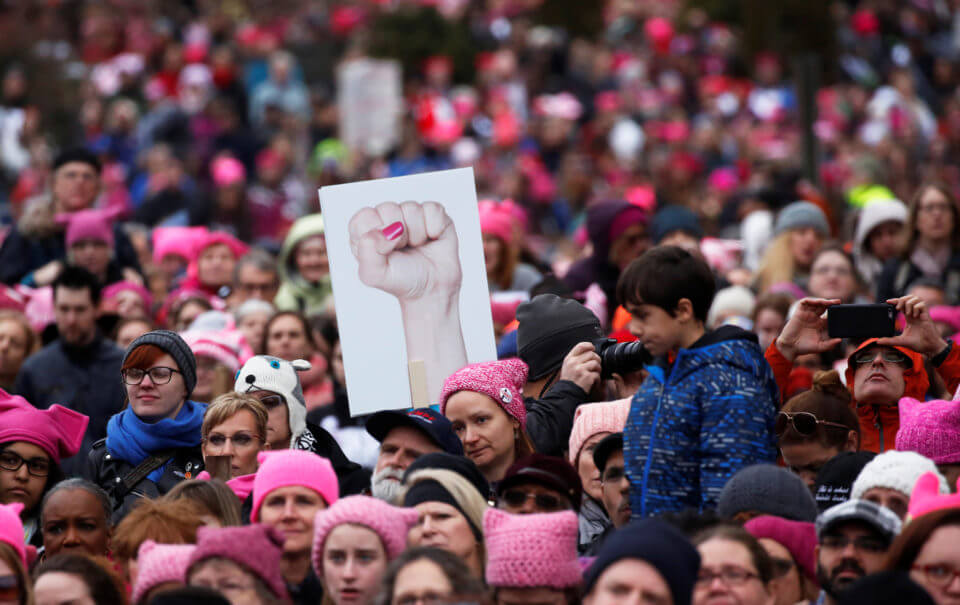
“[Feminism today sometimes] sees the world as a zero-sum struggle between Venus and Mars. But most women want equality, not war. Men aren’t their adversaries. They are their brothers, sons, husbands, and friends. We are in this together.”
Dr. Christina Hoff Sommers is the author of books such as Who Stole Feminism? and The War on Boys. She is currently a resident scholar at the American Enterprise Movement and previously taught philosophy at Clark University. A staunch supporter of what she calls “equity feminism,” Dr. Sommers believes that modern feminism has taken a turn towards a victim mentality that turns men into the opponent, instead of moving together towards greater equality. In this July 23rd conversation with Merion West‘s Erich Prince, Dr. Sommers discusses the current state of men and women in the labor force, the differences between equity and gender feminism, and the future of the feminist movement.
In your book Who Stole Feminism?, you make this distinction between “gender feminism” and “equity feminism,” the former of which you view as being a negative trend and removed from the realities of being a woman today. What are some of the ways in which this skew towards gender feminism manifests itself in our society today?
I am a strong supporter of classical equity feminism—the sort of feminism that won women the vote, educational opportunity, and many other freedoms. Equity feminism developed out of the European Enlightenment: it wants for women what it wants for everyone—opportunity, dignity, and liberty. But equity feminism has never been that popular in the academy. Feminist theorists, led by the dazzling legal scholar Catharine MacKinnon, view our society as a pervasive and all-encompassing patriarchy. It is not enough to change laws or reform customs. The sex/gender system itself has to be dismantled, thus my term “gender feminism.”
I never bought the idea of the U.S. being a patriarchy or a rigid sex/gender system—not in the 1980s, and certainly not today. To me, gender feminism has always seemed like a conspiracy theory. There is no way to prove it wrong. Anyone who tries can be dismissed as an unwitting tool of the system.
Over the years, gender feminism melded with “intersectionality.” So now, undergraduate women learn that they are, to varying degrees depending on their identities, captive to an implacable and pervasive system of intersecting oppressions: sexism, racism, classism, and other “isms.”
What is the social impact? Today’s campus feminism has a cult-like effect on certain students. It draws them in with exaggerated claims about how oppressed nearly everyone is under patriarchy. Some become angry and rancorous. They have no compunction about bullying other students for their alleged privilege or false consciousness.
Any outside speaker who challenges the tenets of gender feminism or radical intersectionality may find themselves shouted down by angry protesters. That happened to me last spring at Lewis & Clark Law School. My talk was a plea for an evidence-based equity feminism. But some students saw me as an apologist for the sex/gender system and insisted my words were a form of violence. So far, most of the excess of gender feminism has been limited to the campus. But there are signs it may be moving into mainstream institutions, especially the media, entertainment, and high tech.
You’ve also criticized modern feminism for creating a “victim” mentality and treating men as obstacles rather than focusing on the establishment of equality between the two genders. In what issues does this mentality become most apparent? Does it ever actually undermine the feminist movement entirely?
Consider the #MeToo anti-harassment movement. It has world-improving potential. There is a new resolve to bring the workplace—and everyday interactions between the sexes—to a higher level of civility and dignity. But that has to be a human undertaking, something men and women do together. We can’t approach men as adversaries. But I see that happening.
I will give you a specific example. During an interview on ABC News, the actor Matt Damon expressed total support for the #MeToo campaign. But he mentioned that we still needed to make distinctions and punish people in proportion to their misdeeds. There is a difference, he said, between an Al Franken and a Harvey Weinstein. Minor transgressors shouldn’t necessarily lose their jobs. If they apologize, there is room for forgiveness. His comments were reasonable and humane.
But the next few days, nearly 30,000 #MeToo’ers signed a petition demanding that Damon be erased from an upcoming film. Minnie Driver, his former co-star, angrily denounced him in the press. There is no hierarchy of abuse, she insisted. She instructed Damon to keep quiet and just listen.
First of all, gradations of harm and degrees of guilt are critical to moral and legal reasoning. Our criminal laws are all about making fine distinctions among bad and worse actions, as are our everyday moral judgments. Telling men as a species to shut up and listen isn’t progress. It isn’t even feminism. It’s sexism.
In a Wall Street Journal article about your book Who Stole Feminism?, Melanie Kirkpatrick praised your work for a “lack of political agenda.” How do you strive to keep the political at bay in your writings?
My writings are not explicitly political. I try to take each issue on its own. Sometimes my views, like pro-choice, pro LGBQ rights, are on the liberal side; other views, like pro-free market, are labeled conservative. I remain a registered Democrat, mainly because it would distress my very liberal 94-year old mother if I were to abandon the party she dearly loves. The thinker I most agree with these days is the economist Dierdre McCloskey. She calls herself a bleeding-heart libertarian. If you can figure out her politics, you can figure out mine. But, again, I am not wedded to a political ideology. If someone can show me solid evidence that I am wrong on an issue, I will change my mind. I even enjoy changing my mind.
You’ve also done a lot of work on gender issues in education with your book The War on Boys, where you discuss the education gap between boys and girls and argue that the way our current educational system works harms boys. What sort of ramifications does this educational gap early in life have for boys?
As the United States moves toward a knowledge-based economy, education beyond high school is the key to making it into the middle class. Overall, young women are adapting, while young men are not. From preschool to graduate school and across ethnic and class lines, girls get better grades, they win most of the honors and prizes, and they’re far more likely to go to college. Our schools have to find a way to connect with boys. Large gender gaps in education can lead to social and economic chaos.
According to the Labor Department, 10 million men in prime working years (25 to 54) are out of the labor force entirely. The economist Larry Summers, former president of Harvard, has looked at the data and concluded that, by mid-century, more than a third of all men in the U.S. between 25 and 54 will be out of work.
This doesn’t have to happen. Our schools have gone to great lengths to offer admirable and effective programs to strengthen girls in areas where they languished—in sports, math, and science. Where are the programs to help boys in areas where they are behind: reading, writing, grades, school engagement, and college matriculation?
You have a lot of critiques of modern feminism and the direction it has taken away from First Wave feminism and some of the advances made during that movement. What do you see as the future of feminism? What direction should proponents of gender equality be heading—and what are some of the ways to fix the problems you see in the movement?
Today’s women’s movement needs to acknowledge that men struggle just as much as women. Modern life is a complicated mix of burdens and advantages for each sex. Too often, feminism focuses on gender inequities among elites: CEOs, MIT astrophysicists, U.S. Senators. It is true that there are too few women in those positions, but we need to consider the entire workforce for context. It’s men who have fallen behind in education, it’s men who still do the backbreaking, lethally dangerous jobs—roofer, logger, roustabout and coal miner, to name a few. And it’s men who are increasingly dropping out of the workforce altogether
Within living memory, the American women’s movement was a valiant, broad-based vehicle for social equality. It achieved historic victories and was rightly admired for its determination and success. It can be that way again. But today, it operates like a narrow, take-no-prisoners special-interest group. It sees the world as a zero-sum struggle between Venus and Mars. But most women want equality, not war. Men aren’t their adversaries. They are their brothers, sons, husbands, and friends. We are in this together. A judicious, reality-based women’s movement could serve us all well into the 21st Century.










